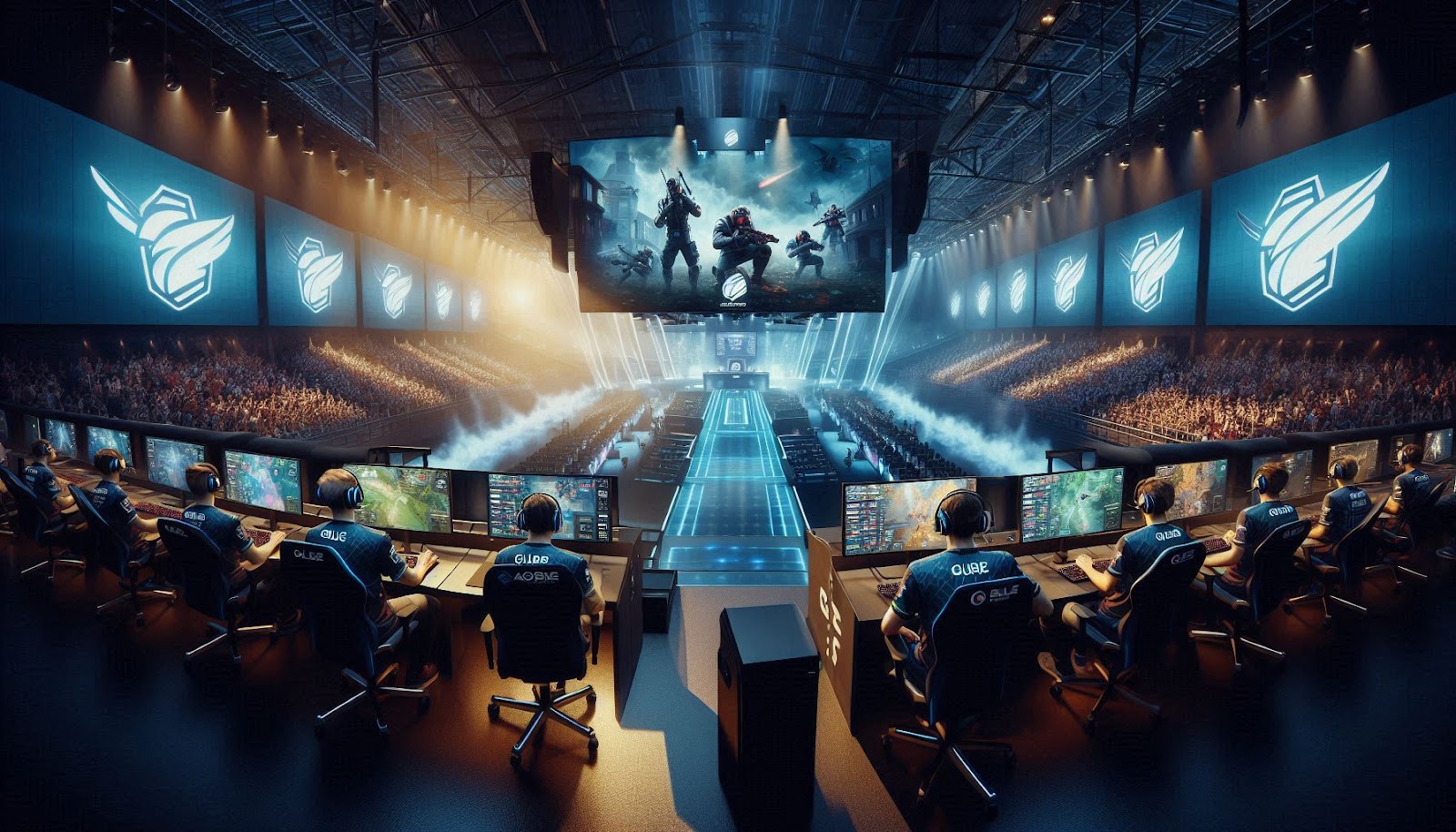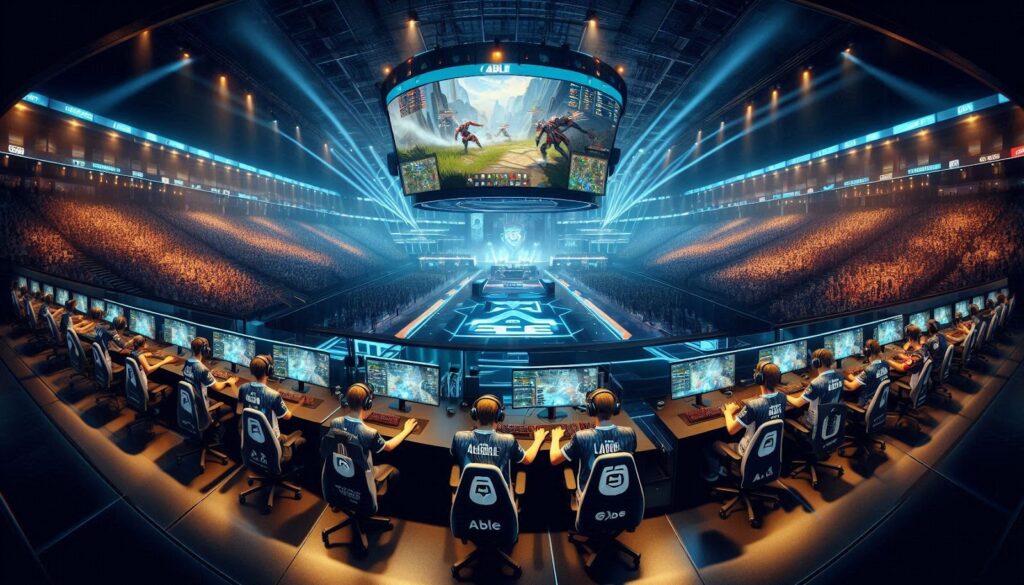Beyond Virtual Realms: Dubai’s Esports Property Renaissance
The convergence of esports and real estate in Dubai represents a transformative shift in the emirate’s property landscape. Traditional commercial spaces are being reimagined to accommodate the burgeoning esports industry, creating unprecedented opportunities for investors and developers. The Dubai Digital Economy Strategy, launched to position the emirate as a global digital hub, has catalyzed the development of dedicated esports facilities and gaming centers across the city.
Dubai’s strategic location between East and West markets has positioned it as an ideal hub for esports tournaments and gaming events, driving demand for specialized real estate developments. The emirate’s tax-friendly environment and robust digital infrastructure have attracted major gaming organizations and tournament organizers, leading to increased investment in purpose-built facilities.
Property developers are increasingly recognizing the potential of esports-focused real estate, with several major projects already underway. These developments range from standalone gaming arenas to mixed-use complexes that integrate residential, retail, and esports facilities. The Dubai Sports Council’s commitment to promoting esports has further legitimized these investments.
Recent market analysis indicates that esports-related real estate investments in Dubai have grown by 300% since 2020, with projections suggesting continued expansion through 2025. This growth is supported by the emirate’s young, tech-savvy population and increasing international recognition as an esports destination.
Digital Oasis: Architectural Innovation in Gaming Venues
The architectural requirements for esports facilities have sparked a wave of innovation in Dubai’s construction sector. Modern gaming venues demand specific technical specifications, from advanced cooling systems to specialized lighting and acoustic treatments. These requirements have led to the development of new construction methodologies and design approaches.
Purpose-built esports arenas in Dubai incorporate cutting-edge technologies while maintaining the emirate’s signature architectural grandeur. Features such as modular gaming spaces, broadcasting studios, and spectator areas are seamlessly integrated into designs that reflect both functionality and aesthetic appeal. The emphasis on sustainable building practices aligns with Dubai’s green building regulations.
Technical infrastructure requirements have become a primary consideration in esports facility design. High-speed fiber optic networks, redundant power systems, and advanced HVAC solutions are standard features. These specifications have influenced construction costs and project timelines, requiring developers to adapt their traditional approaches.
The integration of virtual and augmented reality technologies has further complicated facility design requirements. Architects and developers must now consider flexible spaces that can accommodate emerging technologies while maintaining the structural integrity and operational efficiency of the buildings.
Gaming Capitals: Dubai’s Premier Esports Developments
X-Stadium, Dubai’s first dedicated esports arena, represents a milestone in the emirate’s gaming infrastructure. The 40,000-square-foot facility showcases the potential of purpose-built gaming venues, featuring tournament spaces, training facilities, and retail areas. Its success has inspired similar developments across the city.
Dubai Silicon Oasis has emerged as a hub for esports-related real estate development. The technology park houses multiple gaming centers and development studios, creating a ecosystem that supports both competitive gaming and industry growth. The integration of residential and commercial spaces has created a sustainable community model.
The Dubai Mall’s gaming zone expansion demonstrates the potential for incorporating esports facilities into existing retail developments. This hybrid approach has proven successful in attracting both casual gamers and professional teams, while maintaining steady foot traffic for traditional retail outlets.
Investment in specialized training facilities has created opportunities for real estate developers to partner with educational institutions and gaming organizations. These facilities combine traditional sports science approaches with gaming-specific requirements, creating unique real estate propositions.
Revenue Streams: Monetizing Gaming Real Estate
The revenue potential of esports real estate extends beyond traditional rental income. Tournament hosting fees, broadcast rights, and sponsorship opportunities create multiple income streams for property owners. Understanding these revenue models is crucial for investors evaluating opportunities in this sector.
Retail integration has emerged as a significant revenue generator within esports facilities. Gaming merchandise stores, themed restaurants, and technology retailers create synergistic relationships that enhance property values and operational income. The success of these integrated approaches has led to increased interest from retail brands.
Corporate partnerships and naming rights represent substantial revenue opportunities for large-scale esports venues. Major technology companies and gaming brands have shown strong interest in establishing a presence in Dubai’s gaming facilities, creating additional value for property developers.
The development of premium spectator areas and VIP facilities has created opportunities for high-yield revenue streams. These exclusive spaces cater to corporate clients and high-net-worth individuals, providing additional returns on investment for facility owners.
Infrastructure Evolution: Technical Specifications and Requirements
Network infrastructure requirements for esports facilities have evolved significantly, necessitating substantial investment in technical systems. The implementation of 5G networks and dedicated fiber optic connections has become standard for competitive gaming venues, impacting construction costs and facility design.
Power management systems in esports facilities require redundant configurations to ensure uninterrupted operations during tournaments and events. The integration of sustainable energy solutions, including solar power systems, has become increasingly important for both operational efficiency and regulatory compliance.
Climate control systems in gaming facilities must maintain precise temperature and humidity levels to protect electronic equipment and ensure player comfort. These requirements have led to innovations in HVAC system design and implementation, particularly in Dubai’s challenging climate conditions.
Security systems for esports facilities combine physical and digital protection measures. The integration of advanced access control systems, surveillance equipment, and cybersecurity measures has become essential for protecting valuable gaming equipment and ensuring competitive integrity.
Market Dynamics: Investment Analysis and Growth Projections
Current market valuations indicate strong growth potential in Dubai’s esports real estate sector. Property values in areas with established gaming facilities have shown above-average appreciation rates, attracting attention from institutional investors and development firms.
Investment returns from esports-focused real estate developments have demonstrated resilience during market fluctuations. The sector’s strong connection to digital entertainment and technology has provided insulation from traditional real estate market cycles.
Risk assessment models for esports real estate investments have evolved to incorporate industry-specific factors. The evaluation of potential returns now includes considerations such as tournament hosting potential, technical infrastructure requirements, and ecosystem development opportunities.
Market analysis suggests continued growth in demand for esports-related real estate through 2025 and beyond. Factors supporting this projection include increasing gaming participation rates, growing corporate investment in esports, and Dubai’s expanding role as a regional gaming hub.
Regulatory Framework: Governance and Compliance
Dubai’s regulatory environment for esports real estate development combines existing property laws with new guidelines specific to gaming facilities. Understanding these regulations is crucial for successful project development and operation.
Building code requirements for esports facilities address unique safety and technical considerations. These regulations cover aspects such as emergency evacuation procedures, fire safety systems, and accessibility requirements specific to gaming venues.
Licensing requirements for esports facilities include both property-related permits and gaming-specific authorizations. The process of obtaining necessary approvals has been streamlined through the Dubai Sports Council’s dedicated esports division.
Environmental regulations impact the development and operation of gaming facilities. Sustainability requirements, energy efficiency standards, and waste management protocols must be integrated into facility design and operational plans.




